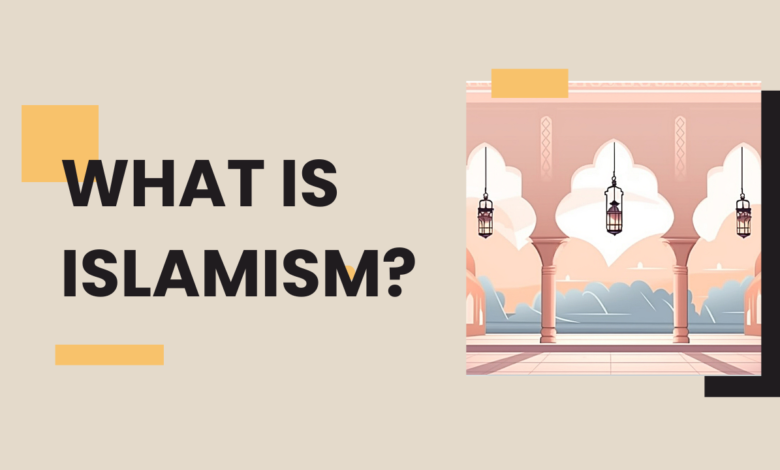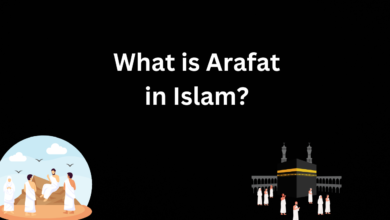
What is Islamism?
Islamism is a political ideology and movement that seeks to establish a society governed by Islamic principles and law. It often emphasizes the role of religion in public life and may call for the implementation of Sharia, or Islamic law, in various aspects of society.

Introduction
Islamism is a complex and often misunderstood concept that has gained prominence in discussions about religion, politics, and global security in recent decades. It’s essential to clarify that Islamism is not synonymous with Islam; it represents a particular ideological and political interpretation of Islam. This article aims to provide a comprehensive overview of what Islamism is, its historical roots, key ideologies, and its impact on both Muslim-majority countries and the world at large.
Defining Islamism
Islamism, also referred to as political Islam, is a multifaceted political and religious ideology that seeks to establish Islamic law, or Sharia, as the foundation of the state and society. Adherents of Islamism are known as Islamists, and they advocate for the fusion of religion and politics in a way that governs all aspects of public and private life. It’s important to distinguish between Islam as a religion and Islamism as a political ideology. The majority of Muslims worldwide do not subscribe to Islamist ideologies.
Historical Roots
Islamism’s roots can be traced back to the early 20th century, although its origins are often debated among scholars. Some argue that the roots of contemporary Islamism lie in the late 19th century when Muslim scholars like Jamal al-Din al-Afghani and Muhammad Abduh promoted reformist ideas to rejuvenate Islam in response to European colonialism. In the 20th century, movements such as the Muslim Brotherhood in Egypt and Jamaat-e-Islami in South Asia emerged as prominent examples of early Islamism. These organizations aimed to create a more Islamic society, often by peaceful means, but sometimes by political activism and resistance.
Also Check
- Islamic Quotes
- What’s inside the Kaaba?
- Who built Kaaba?
- The Prophet Muhammad and the Concept of Sadaqah
- What is Jesus real name?
Key Ideologies
Islamism encompasses a wide spectrum of ideologies, from moderate and non-violent interpretations to radical and extremist ones. Here are some key ideologies within the realm of Islamism:
- Salafism: Salafism seeks to return to the fundamental practices and beliefs of the earliest generations of Muslims (the Salaf). While not inherently violent, it has provided ideological underpinnings for extremist groups like Al-Qaeda.
- Muslim Brotherhood: Founded in Egypt in 1928, the Muslim Brotherhood represents a more moderate form of Islamism that has renounced violence in recent years. They focus on grassroots activism and social welfare.
- Wahhabism: This puritanical form of Islam is the official religious ideology of Saudi Arabia. It is often associated with a strict interpretation of Sharia and has influenced various radical groups.
- Jihadism: Jihadism is a more extreme and violent strand of Islamism, emphasizing the use of violence to establish Islamic states. Groups like Al-Qaeda and ISIS are rooted in this ideology.
Impact on Muslim-Majority Countries
Islamism has had a significant impact on Muslim-majority countries and their political landscapes. In some countries, it has led to the rise of Islamist political parties, and in others, it has resulted in militant groups resorting to violence to achieve their objectives. The influence of Islamism has manifested in various ways, ranging from changes in laws and policies to social and cultural shifts. It has also shaped the discourse on democracy, human rights, and the role of women in Muslim-majority nations.
Global Impact
Islamism’s impact extends beyond the borders of Muslim-majority countries. It has played a pivotal role in shaping global geopolitics and security. Islamist extremist groups have been responsible for various acts of terrorism worldwide. The events of September 11, 2001, brought the global attention to the danger of jihadist terrorism, leading to extensive counter-terrorism efforts.
Conclusion
Islamism is a complex and multifaceted political and religious ideology that represents a broad spectrum of beliefs and practices. It’s crucial to recognize that not all Islamists are violent extremists, and there are varying degrees of political and religious commitment within the broader Islamist movement. Understanding Islamism is essential for addressing the challenges it poses, both within Muslim-majority countries and on the global stage. Striking a balance between respecting religious freedom and countering violent extremism remains a complex task, and nuanced discussions about Islamism are essential for fostering peace and stability in an increasingly interconnected world.

(FAQs) about Islamism:
What is Islamism?
Islamism is a political ideology and movement that seeks to establish a society governed by Islamic principles and law. It often emphasizes the role of religion in public life and may call for the implementation of Sharia, or Islamic law, in various aspects of society.
Is Islamism the same as Islam?
No, Islamism is a specific political ideology, whereas Islam is a religious faith. Islamism represents a particular interpretation of Islam with a focus on political and social aspects.
Are all Muslims Islamists?
No, not all Muslims are Islamists. Many Muslims practice their faith as a personal and spiritual matter and do not advocate for the establishment of an Islamic state or the strict implementation of Sharia law.
What are the key goals of Islamism?
The goals of Islamism can vary among different groups, but common objectives include the establishment of Islamic governance, the implementation of Sharia law, and the promotion of Islamic values and morals in society.
Are all Islamists terrorists?
No, not all Islamists are terrorists. While some Islamist groups have engaged in acts of terrorism, many others pursue their goals through non-violent means, such as political participation, advocacy, and community work.
What are the main differences between moderate and radical Islamism?
Moderate Islamism typically seeks to achieve its goals through peaceful and democratic means, while radical Islamism may resort to violence and terrorism to achieve its objectives. The distinction between the two can be complex and may vary by context.
Are there different branches or movements within Islamism?
Yes, there are various branches and movements within Islamism, including the Muslim Brotherhood, Salafism, Wahhabism, and more. These groups may have different interpretations of Islam and varying approaches to achieving their goals.
Is Islamism a global phenomenon?
Yes, Islamism has a global presence, with groups and movements found in many countries around the world. While some movements are localized, others have transnational or international aspirations.
What is the relationship between Islamism and democracy?
The relationship between Islamism and democracy can vary widely. Some Islamist groups have participated in democratic processes and elections, while others reject democracy in favor of an Islamic state. The compatibility of Islamism with democracy is a subject of ongoing debate.
How does the international community view Islamism?
The international community’s perception of Islamism varies. Some countries and organizations view it with suspicion, particularly when it is associated with violence or extremism. Others engage with moderate Islamist groups in diplomatic and political efforts.






